The Merry-Go-Round staff is proud to present our top films of 2018
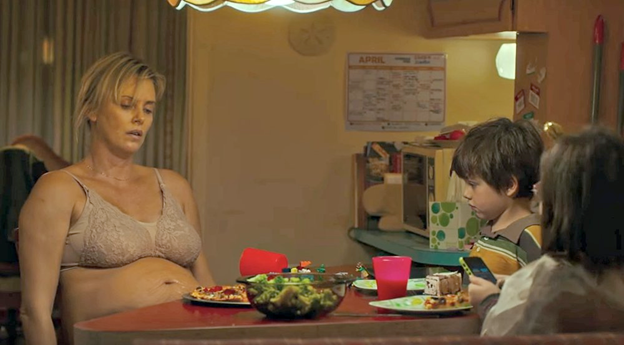
50. TULLY
Director: Jason Reitman
Genre: Comedy
What can be best described as a coming-of-age film for adults, TULLY brings us a story about a woman at a stage of life we’re not used to hearing about. She’s just about to give birth to her third child, past her 30s and pushing middle age. Upon hiring a young and free-spirited night nanny, she sees all the things she used to be, and just how much of her youth is gone forever. Despite its very bizarre ending, TULLY is a wonderfully fresh take on its genre. Frequent Jason Reitman collaborator Diablo Cody’s astute, observational writing style and Charlize Theron’s tragicomic performance saves Reitman from his recent stint of misfires (including his rather disappointing THE FRONTRUNNER, which also released this year). It’s a tale relatable to parents around the world, and with our growing willingness to let these voices be heard, we are finally able to pour one out for moms far and wide. If there’s one thing to take away from this film, it’s that we’re never finished growing up. [Nadia Hayford]
 49. FIRST MAN
49. FIRST MAN
Director: Damien Chazelle
Genre: Drama
Damien Chazelle is the 21st century’s Steven Spielberg: a director with incredible visual heft, a vested interest in American exceptionalism, a passion for original IPs, and a style trailblazer. FIRST MAN carries with it many of these qualities. It is a technical marvel, goosebump-inducing from start to finish, boasting a phenomenal Justin Hurwitz score and perhaps the best example of shaky cam in a film released outside of kitchen sink dramas. Few handheld films released after the turn of the millennium bear such stark realism, let alone Oscar-season, triple-A prestige pictures. Unlike the loud and proud antics of WHIPLASH and LA LA LAND, FIRST MAN is discernibly more tight-lipped. This is an insanely internal film, anchored entirely by Ryan Gosling’s repressed mourning, clenching tight until finally letting go after accomplishing the greatest achievement in mankind’s history. It’s a rather remarkable approach to such an age-old story of American heroism, finding a human element in a distinctly incredulous feat, and though one can justifiably criticize FIRST MAN for never fully finding its footing as a domestic drama, Chazelle has given us yet another fascinating look into obsession and the process that goes into mastery. [Sergio Zaciu]
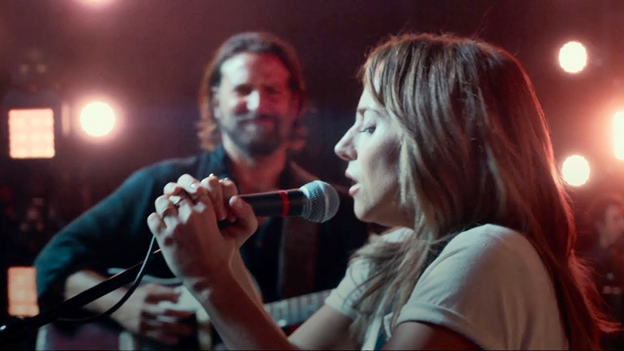 48. A STAR IS BORN
48. A STAR IS BORN
Director: Bradley Cooper
Genre: Drama
“Maybe it’s time to let the old ways die…” Bradley Cooper’s character, Jackson Maine, sings this as he considers closing a depressive and harmful chapter in his life. But after meeting Ally Campana (played in a star turn by Lady Gaga), an insecure waitress with a golden voice, he helps launch her into Stardom. It’s the classic Hollywood story (quite literally, as A STAR IS BORN has already been made three times prior), which is also tied up in the idea of the American Dream. But through the years, fame and success seem to have been intimately tied to each other, and often with tragic results. A STAR IS BORN doesn’t shy away from the complexity of the situation, with Jack representing someone who has been chewed up and spit out of the system, and Ally, who struggles with maintaining her voice during her meteoric rise. Credit goes to almost all involved for the fantastic soundtrack and consistently moving performances. At times it’s searing drama, at times Hollywood propaganda, but it’s a remarkably solid directorial debut for Cooper, and often an incredibly engrossing experience. [Sam Wall]
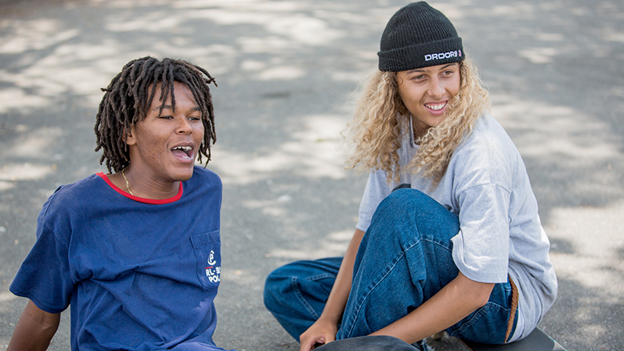 47. MID90S
47. MID90S
Director: Jonah Hill
Genre: Drama
Some people thought Jonah Hill’s directorial debut was nothing more than a rip-off of Larry Clark’s KIDS, sans the hardcore edginess. I dare say MID90S is actually better than KIDS, a love-letter to when children were allowed to be bored, and were able to fill that boredom in search of an identity that could only be shared in person, or at most via videotape instead of Instagram. Though I was skeptical at first, it was a joy to see Jonah Hill live out his blatant fantasies of being a skater kid amidst grounded compositions and hyper-real character interactions. I was gripped from beginning to end amidst Hill’s 4:3 frame (hopefully, along with COLD WAR, this is the beginning of a wider trend). MID90S is the type of film where you can feel the bone-cracking misery of every crash. It pulls no punches—when you skate, you will hurt yourself many, many times before you succeed. When you crash, you crash hard. This ain’t ROCKET POWER. What’s more, you can feel the seething desperation of these kids going nowhere fast, frustrated by the fact that in a few years time, they’ll be losers. But for right now, they’re skaters. And this day in the mid-90s, that’s all that matters. [Reid Antin]
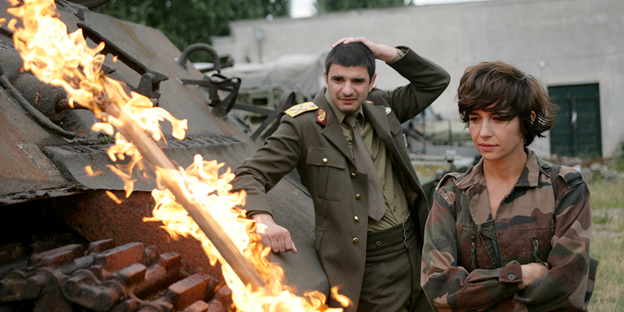 46. I DO NOT CARE IF WE GO DOWN IN HISTORY AS BARBARIANS
46. I DO NOT CARE IF WE GO DOWN IN HISTORY AS BARBARIANS
Director: Radu Jude
Genre: Comedy
In a year showered with phenomenal foreign language entries, it’s not much of a surprise that a film as obtuse, challenging, and niche as Radu Jude’s I DO NOT CARE IF WE GO DOWN IN HISTORY AS BARBARIANS went ignored by the Academy Awards selection committee. In this complex political satire, Jude does for the Romanian New Wave what Abbas Kiarostami’s CLOSE-UP did for Iran: fusing the genres of documentary and fiction into an indistinguishable whole, opening up a Pandora’s box of queries regarding national pride trumping our capacity for shame. Romania’s torrid (and oft-unspoken) complicitness in aiding the Axis forces during the Second World War serves as the bedrock for Jude’s film, but instead of relegating this subject to something as didactic as a wartime period piece, Jude confrons Romanian society head on, in what might just be the boldest film to emerge out of the nation’s blossoming, politically observant film scene to date. It is a logical, and ingenious follow-up to his equally magnificent AFERIM!, a work of narrative fiction that also challenged Romanian sentiments towards marginalized communities, but with his latest, Jude has crafted a work of art that is distinctly unique in its format: equal parts hilarious, harrowing, and eye opening. [Sergio Zaciu]
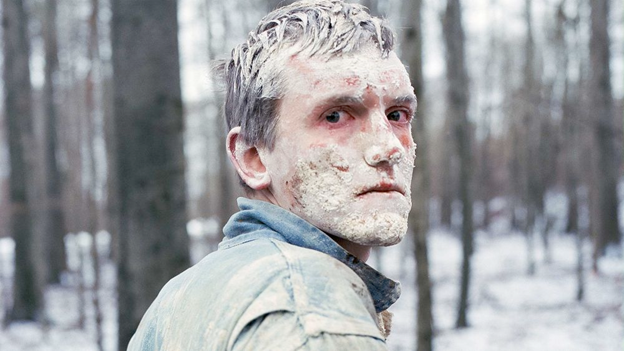 45. WINTER BROTHERS
45. WINTER BROTHERS
Director: Hlynur Pálmason
Genre: Drama
I’d be hard pressed to think of better cinematography in 2018 than in Hlynur Pálmason’s WINTER BROTHERS, but frankly, that comes second to its outstanding storytelling. In spite of its often bleak outlook, WINTER BROTHERS’ story is grounded in so much humor that I can’t help but smile through Pálmason’s bleak realism. Filmmakers who explore marginalized communities and working class people oftentimes forget that these individuals smile, laugh, and joke around just as much as anyone else. It’s something that Pálmason gets so damn well. Much like Sean Baker, his filmmaking isn’t consumed with the monotone qualities of oppression, but rather the little things that make us all loving, vulnerable human beings. Contemporary cinema, both mainstream and arthouse, has certainly shifted to the realm of a nu-social realism. The finest accomplishments in this new trend of cinema are the ones that spotlight our shared humanity. So when we get a film like WINTER BROTHERS, MOONLIGHT, AMERICAN HONEY, TANGERINE, or THE FLORIDA PROJECT, it is our shared responsibility to hold these films up as the tentpoles of the ongoing movement they represent. [Sergio Zaciu]
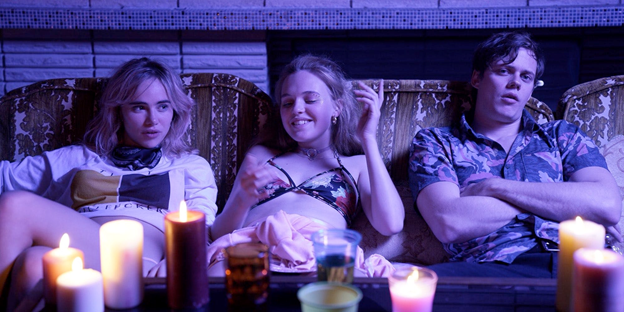 44. ASSASSINATION NATION
44. ASSASSINATION NATION
Director: Sam Levinson
Genre: Comedy
Talk about a whiff: the talk-of-the-town of Sundance, the festival’s most expensive acquisition, and subject to a year-long sleeper campaign that culminated in nonexistent box office returns and the critical ire of the few outlets that bothered to engage with it, Sam Levinson’s ASSASSINATION NATION was dealt a dirty hand. An adrenaline shot to the face of youthful ego and flimsy-footed progressivism, the greatest feat of the film is not in its messages, but in how accurate its portrayal of our culture’s dispersion of these messages are. As brash as a viral tweet, but insightful through its funneling of social norms via the casings of peak genre cinema. Maybe it’s the wrong time and the wrong place for a movie like this. When you hold a mirror up to the audience, they pounce at the detestable image presented—give it a decade to simmer and become a cult classic. It ain’t fair, but seeing the wasteland presented in ASSASSINATION NATION, I presume Levinson already knows that. [Kevin Cookman]
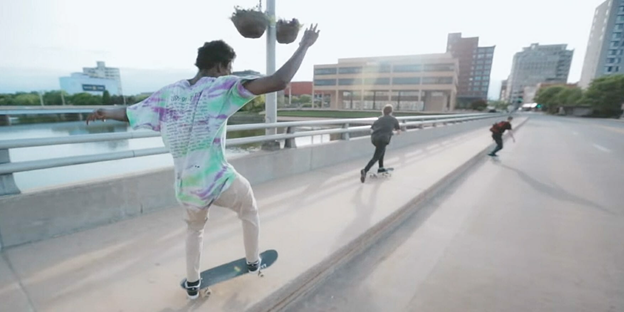 43. MINDING THE GAP
43. MINDING THE GAP
Director: Bing Liu
Genre: Documentary
Dare I say that MINDING THE GAP is the most empathic depiction of young people since KIDS? What’s amazing about Bing Liu’s directorial debut is how it manages to use its skateboard-rebellion framing device to explore issues of institutional racism, abuse in relationships, and the decrepit state of late capitalism. Alongside MID90S and SKATE KITCHEN, it is only one of three fantastic skateboarding films to release in 2018, but what sets MINDING THE GAP apart is its ensemble: Liu absolutely lucks out with his cast, each subject providing humor and insight in spades, though usually disguised in skateboarder lingo. The filmmaker expertly cobbles together years of disparate footage into a coherent odyssey of adolescence, frequently placing himself in the diegesis, with an interview of his mother proving to be a stand-out instance of a documentarian mingling with his subjects. There isn’t really any other documentary quite like it, and the fact that the Academy Awards recognized it in a year of peculiar (and oft-frustrating) choices is a welcome surprise. [Luka Stojcic]
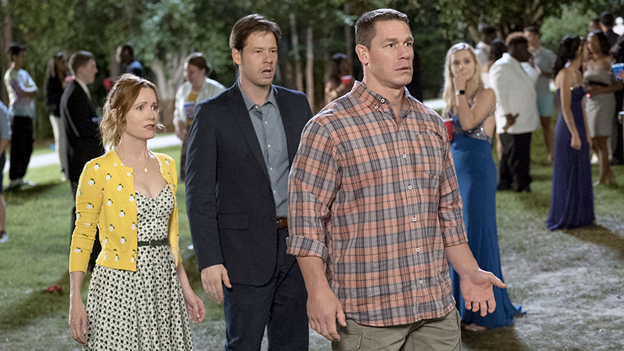 42. BLOCKERS
42. BLOCKERS
Director: Kay Cannon
Genre: Comedy
It took multiple friends insisting that BLOCKERS was worthwhile before I caved and watched it, and I am so glad I did. Its premise seemed ridiculous, but its positive portrayal of female teenage sexuality, and its sympathetic and supportive teenage male characters, won me over. In the months since the success of BLOCKERS, director Kay Cannon described how she made sure to put her own mark on the story as a female director. She brings a nuance and empathy to the sexual experiences of both the teenagers and their parents that might have been lost with a director who preferred to focus on the awkward and gross parts of teenage sexuality. And though parts of this film can definitely be called awkward, gross, or both, it approaches sex with sensibility. The absolute best part of BLOCKERS is its portrayal of three different sexual experiences with no judgement nor negative consequences for the girls who have them. And frankly, it’s rare to see that many positive stories of female sexuality in one place. BLOCKERS shows a maturing in our cultural conversation, proving that we’ve grown up from the shock value of AMERICAN PIE and moved on to a more sober and fair view of sexuality. In other words, BLOCKERS absolutely nails it. [Nicole Barraza Keim]
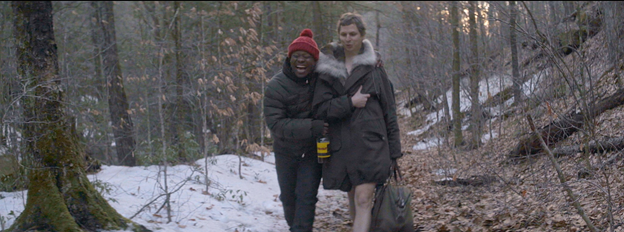 41. TYREL
41. TYREL
Director: Sebastián Silva
Genre: Comedy
“GET OUT But Smart” may be a rather flippant pitch for a film, but of the two pictures about black men stuck in rural homes with Caleb Landry Jones, this one is hands-down the more compelling tale. TYREL follows Tyler (Jason Mitchell), the token black guy tagging along on a birthday retreat for an acquaintance (Jones), whose well-meaning but naive pals make him feel like even more of an outsider than he already is. Over the weekend, Tyler comes to form new friendships while questioning his existing ones. While so many contemporary movies on race remain fixated on endemic issues like gentrification and police brutality, TYREL chooses to concern itself with more day-to-day anxieties across cultural lines. Is this white guy teasing Tyler for sleeping with a hair net, or are his remarks driven by genuine curiosity? Rather than jump scares and weird science, it’s uncertainties like this that drive Tyler towards the creeping realization that neither he nor his new friends will ever truly understand each other. Whether the boyish camaraderie that develops between them is because of or despite this rift is entirely up to the viewer. TYREL doesn’t provide the answers to these questions, nor does it pretend that it could even if it wanted to. As a racial Rorschach test, TYREL’s mileage will vary, but as an often-turbulent buddy romp, it is an exceedingly well-crafted and savvy entry in 2018’s indie catalog. [Ed Dutcher]
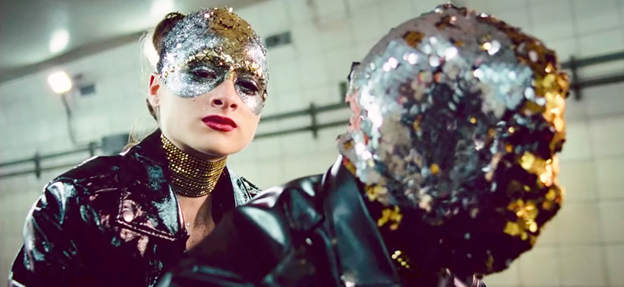 40. VOX LUX
40. VOX LUX
Director: Brady Corbet
Genre: Drama
To be clear upfront, VOX LUX will piss you off, but I’ll be damned if it’s not fully aware of why and how it’s doing so. The surface-level reading of this will easily lead you to dismissing it as the work of an edgelord troll, but as annoying as it may sound, this may in fact be the first mainstream-adjacent example of “post-internet” sensibilities to hit the silver screen. There’s a chilling disaffection here for images and legacies of trauma that perfectly match our generation raised on shock sites, Buzzfeed, TMZ, and an oppressive, all-encompassing news cycle constantly blaring and projecting suffering and celebrity onto our person. Cold and somewhere in the uncanny valley, everything is fundamentally “off,” culminating in one of the most secretly brilliant final acts 2018 has in its Rolodex: an off-kilter, plasticine live performance that’s both a refreshing antidote to the Fathom Event of BOHEMIAN RHAPSODY’s closing and everything A.G. Cook envisioned with PC Music’s GFOTY and Hannah Diamond, and then some. At the end of the day, VOX LUX leads to a churning turmoil somewhere deep within the gut, but one that doesn’t inherently rely on exploitation, and seems to be an unsung gem perpetually destined to be misunderstood. But then again, isn’t that how we treat all of our pop stars? [Thomas Seraydarian]
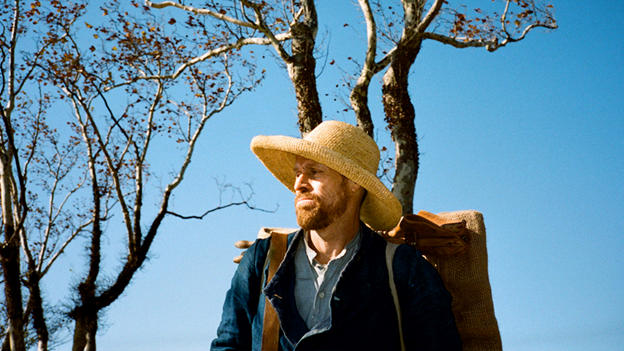 39. AT ETERNITY’S GATE
39. AT ETERNITY’S GATE
Director: Julian Schnabel
Genre: Drama
The most striking moments in AT ETERNITY’S GATE are when we see Van Gogh actually being among the nature he is so often remembered for capturing. In these occasionally long sequences scored by Tatiana Lisovskay, Willem Dafoe seems to be almost weightless, playing a character whose sole inner peace came from the art he was making, and the pseudo-religious experiences he would have being amongst God’s creation. And while director Julian Schnabel, whose work on THE DIVING BELL AND THE BUTTERFLY proved him a perfect candidate for a Van Gogh biopic, explores the painter’s connectedness to nature and the serenity he feels by being an artist throughout the film, sometimes through very direct conversation, it’s when we see that mania calmed in wordless, freeing montages that you truly understand Van Gogh. To call it the role of a lifetime for Dafoe would be bullish, especially when you’ve had a career as storied and monumental as his, but there is a tranquility and a buoyancy to Dafoe’s acting here that is unlike anything else he’s ever done. [CJ Simonson]
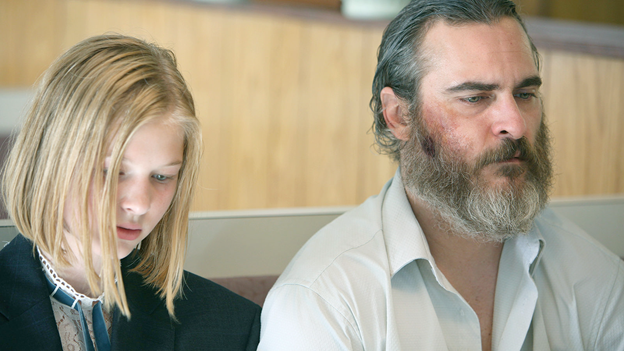 38. YOU WERE NEVER REALLY HERE
38. YOU WERE NEVER REALLY HERE
Director: Lynne Ramsay
Genre: Thriller
It’s a story we’ve seen a hundred times. A brutal, but well-intentioned protagonist sets out to save an innocent girl, and perhaps himself in the process. Joaquin Phoenix is, of course, tremendous (literally, he’s huge) as Joe, and I can’t praise his performance enough, but what makes YOU WERE NEVER REALLY HERE so different from all the other TAKEN riffs out there—and so impactful because of it—is the subversive touch of director Lynne Ramsay. There’s no male gaze, no gratuitous nudity, and much of the violence that defines Joe’s life is committed offscreen or shown obliquely through CCTV footage or jagged cutaways. Ramsay, instead, assumes the role of psychologist, paring away the flesh and musculature of the genre, revealing the scarred heart beneath. Joe is a blur, a shadow. He is the ball-peen hammer swung into a face. He is the continuum of abuse and the hazy area between nature and nurture. But he is also a person, sundered by what better angels of his nature. Ramsay purposefully obfuscates a great deal, but what can be inferred is telling. Joe didn’t slide into the life of a hitman because of things he saw or did in the line of duty. He joined the service because it was the most noble outlet for the violence inside. Crushing the skulls of child abductors is merely a logical extension of that. [Joseph Simpson]
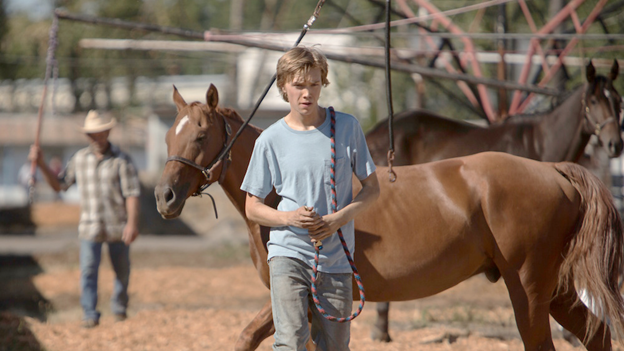 37. LEAN ON PETE
37. LEAN ON PETE
Director: Andrew Haigh
Genre: Drama
An uncompromising work of equestrian fiction (trust me, I’m well aware of how absurd that sounds), Andrew Haigh’s third film stays true to his brand of naturalist, honest, and always refreshing independent cinema, cementing him as perhaps my favorite voice in the indie scene. LEAN ON PETE suggests so many lazy tropes with its logline, and somehow transcends every single one of them, not to mention that it looks like a million bucks, as if a still photographer found his way onto each of these locations, completely unobtrusive in its deft combination of static and handheld camerawork. Charlie Plummer plays his role so effortlessly, and Steve Buscemi, Chloë Sevigny and Steve Zahn all disappear into their roles. Combining these effortless star turns with some of the finest compositions and best color work I’ve seen in a feature film in 2018, LEAN ON PETE secures its place as a clean, natural, and neo-realist tour-de-force, proof that Haigh’s poetics are not tethered to the British Isles. It is, without a doubt, my favorite film ever made about a boy, his horse, and all the people that stand in their way, an emotional gut-punch whose twisting narrative makes for an unbelievable adventure. [Sergio Zaciu]
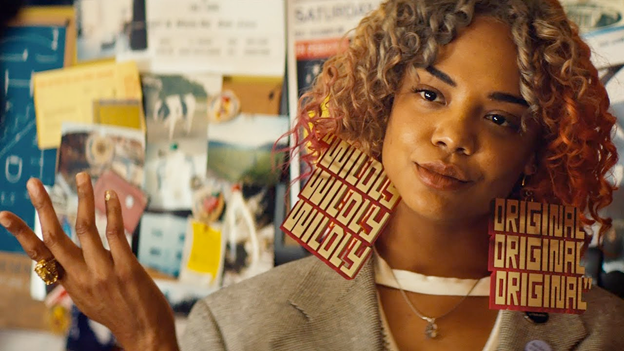 36. SORRY TO BOTHER YOU
36. SORRY TO BOTHER YOU
Director: Boots Riley
Genre: Comedy
Many films that provide commentary on the dark side of capitalist society come through as rags-to-riches villain origin stories, as one individual gets corrupted by greed and excess. Few reveal the moral complexity and psychological turmoil that comes with the pursuit of financial success as much as SORRY TO BOTHER YOU. The trailers made us believe it was only going to be a goofy comedy about a black telemarketer who uses his “white voice” to make sales. But it ended up being so much more than that. What we really got was a fantastic absurdist comedy that critiques America on the topics of capitalism, race, and fine art. The absurd elements are all at once hilarious and terrifying as we descend into the insane flood of choices Lakeith Stanfield’s Cassius Green must make in order to achieve some semblance of power in our modern world. In his directorial debut, Boots Riley has proven his ability to produce kick-ass satire in an era that demands it. This is one film that proves that diversity plus daring originality is a winning combination, and we can only hope for more of its kind in the future. [Nadia Hayford]
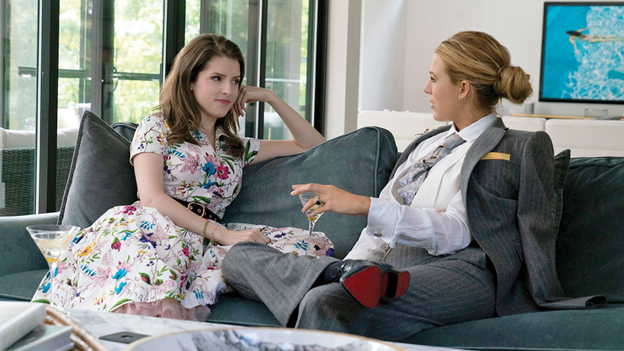 35. A SIMPLE FAVOR
35. A SIMPLE FAVOR
Director: Paul Feig
Genre: Drama, Thriller
A victim of a shoddy-at-best marketing campaign, A SIMPLE FAVOR is perhaps the movie you missed in 2018. Best described as Hollywood’s answer to the twisting, heady crime and drama films favored by South Korean directors, A SIMPLE FAVOR is quite simply nothing like you expect it to be, with more back-stabbings, double-crossings, and red-herrings than you can count. What starts as Anna Kendrick watching Blake Lively’s son after school ends up in a labyrinthine cross-exploration of Lively’s past, the validity of her disappearance, the true motives of her husband, and so much more. Though occasionally head-spinning, Paul Feig demonstrates a vice-like grip on a narrative the likes of which he’s never tackled before, regularly shocking us, surprising us, and keeping us on the edge of our seats whether we like it or not. The film is notably not a comedy, and rarely works when it attempts for more explicit levity, but the cruel, calculating energy at the core of this film contrasts Feig’s oversaturated aesthetic palette nicely, ending up somewhere just adjacent of the best Lifetime movie that was ever conceived. With performances from its core cast that absolutely knock it out of the park, A SIMPLE FAVOR is more than worth your time, and it’s a shame our expectations were geared towards such an opposite extreme. [Thomas Seraydarian]
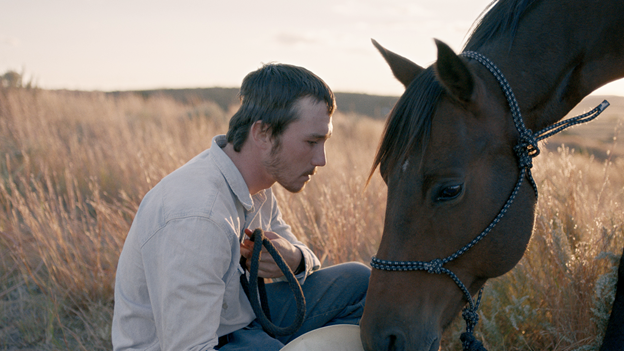 34. THE RIDER
34. THE RIDER
Director: Chloe Zhao
Genre: Drama
It would be more accurate to say that THE RIDER is a movie that’s felt, not seen, and though this sounds like a lofty proclamation to try and justify a slow-burn movie, THE RIDER is truly unlike anything to hit theatres this year. Following a severely concussed cowboy’s struggle to leave the rodeo life, Chloe Zhao’s sophomore feature tightens the sphincter like few other films are able to. A semi-biographical tale, Brady Jandreau exudes a cool confidence around the broncos in his care, but what is an otherwise calm exercise in slow cinema becomes a nail-biting ordeal each time he takes the saddle. The real star of THE RIDER, however, are the plains on which the stage is set. Zhao nails it with her bleak portrayal of the South Dakota badlands, a desolate waste that makes a convincing case that maybe Jandreau would be happier punching out after One Last Ride than lingering on back at his rundown shack. Evoking the best aspects of THE WRESTLER, THE RIDER delivers a gut-wrenching tale of pride that isn’t easily forgotten. [Ed Dutcher]
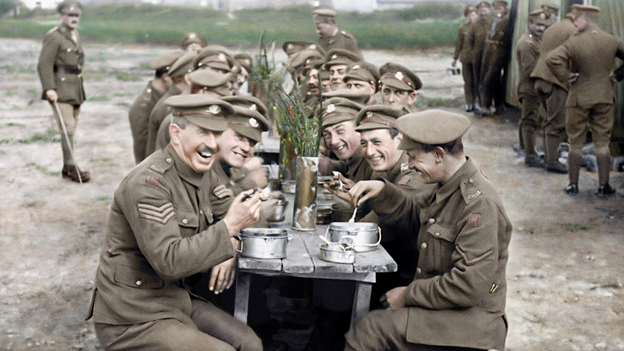 33. THEY SHALL NOT GROW OLD
33. THEY SHALL NOT GROW OLD
Director: Peter Jackson
Genre: Documentary
Often overshadowed by the unfathomably horrific war that followed it, World War I isn’t often as known or studied, though by all accounts it should be, an essential moment in mankind’s torrid legacy of war, inhumanity, and selfish conquest. Many would blame the limited access to stories and films from the time period for the absence of cinematic renderings of the war. But with THEY SHALL NOT GROW OLD, director Peter Jackson laughs in the face of those who say so, stepping out of his high-fantasy comfort zone, and using his talents to colorize, sound design, stabilize, and craft an extraordinarily immersive and empathetic tribute to those who fought valiantly in The Great War. Although through a British perspective, the film is done so in a very human way, in that each of the characters could be a German, an Ottoman, or a Sikh. It’s a reminder of the stupidity of war, and the enormous loss of life that results from it. And it’s a reminder that history is populated by human stories, not nameless figures in a black and white photograph. [Sam Wall]
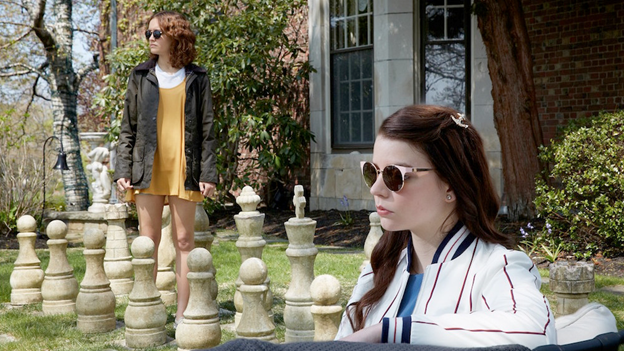 32. THOROUGHBREDS
32. THOROUGHBREDS
Director: Cory Finley
Genre: Comedy
O, the apathy! In many ways, the best Yorgos Lanthimos film not directed by Yorgos Lanthimos this year. THOROUGHBREDS is HEATHERS on steroids: a grimly comical, AMERICAN PSYCHO-esque portrait of suburbia and just how fucked up rich kids can get. Nothing new, of course—but well-executed executions nonetheless. The rather exciting element that this is director Cory Finley’s debut film adds to the fact that THOROUGHBREDS is a promising showcase of a career deservedly on the rise. The widescreen compositions are primo, and lend an epic quality to that feeling of having a wholesome snack after school on a sunny day, all the while daydreaming the most sinister thoughts imaginable. It’s sociopathic to a T, and lead actresses Olivia Cooke and Anya Taylor-Joy deliver a deadpan viciousness that would have Norman Bates running for the hills. Throw in the added fact that this is the last film in actor Anton Yelchin’s tragically short career, and THOROUGHBREDS is something of a historical must-see. [Reid Antin]
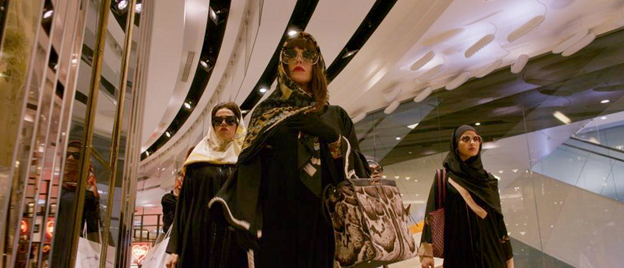 31. THE WORLD IS YOURS
31. THE WORLD IS YOURS
Director: Romain Gavras
Genre: Comedy
Dear reader, I respect your intelligence too much to oversell you on THE WORLD IS YOURS. I could tell you that this hidden gem of a Netflix Original brilliantly subverts the gangster fantasy promised by SCARFACE, but that would ignore how damn fun it is. No, this story of a wannabe kingpin from a French ghetto travelling to Spain in order to cut his teeth on the international drug trade should require zero philosophical waxing on my end to give you an idea of what to expect. A schlubby, low-level dealer with big dreams, his domineering con-artist of a mother, his ex-stepdad-turned-confidant, and his on-again-off-again girlfriend make for the most enthralling team of outlaws I’ve seen in years. Standing between this odd bunch and their score are the criminally garish Scottish mob, the extreme ineptitude of a pair of goons their boss sent to shadow them, and possibly even the Illuminati. Set on a sunkissed Spanish beach resort, this quintessential rogues gallery drives a hilarious and poppy caper that fits right in with Guy Ritchie’s early work. As long as you aren’t frightened by subtitles or liberated French social mores, THE WORLD IS YOURS is a guaranteed good time with no strings attached. [Ed Dutcher]
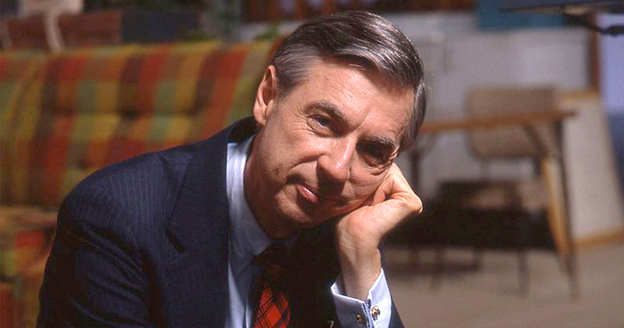 30. WON’T YOU BE MY NEIGHBOR?
30. WON’T YOU BE MY NEIGHBOR?
Director: Morgan Neville
Genre: Documentary
Mass media has rightfully had a crisis of faith in the last few years. The blending of profitable entertainment with vital information has created a public entirely skeptical of all major media outlets. If anyone is to blame for the election of Donald Trump, it seems safe to say that coverage of his campaign deserves a heaping portion of it. For decades now, there has seemingly been a naked cynicism to how the people on our TVs help form our shared reality, which is why this felt like such an apt time to revisit the legacy of Fred Rogers. True, Mr. Rogers’ audience was small children, but understanding how he respected his audience’s intelligence applies directly to our current media landscape. It’s not so much the literal content of Rogers programming that still matters, but rather the methodology he used. Intentionally choosing to keep his show calm and slow, making every phrase maximally effective, Rogers communicated in a way people so rarely choose to. This isn’t to say we have to revert back to “the good old days,” but it is to say that Morgan Neville’s documentary stands as a firm reminder to never forget the responsibility media figures have towards their audience. [Carter Moon]
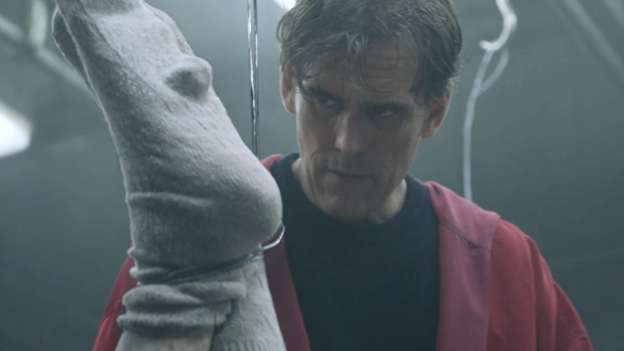 29. THE HOUSE THAT JACK BUILT
29. THE HOUSE THAT JACK BUILT
Director: Lars von Trier
Genre: Thriller
I haven’t seen every film on this list, but I’ll go out on a limb and say that Lars von Trier’s THE HOUSE THAT JACK BUILT is probably the most difficult, if not outright confrontational of the lot. Does that make it one of the best of the year? In itself, no. And still, two-and-a-half-hours of a serial killer (Matt Dillon, in a career-defining turn as an ostentatious Ted Bundy-type) lovingly recounting a handful of his “incidents,” likening them to high art, is going to be a tough sell, no matter how well done it is. But damn if it isn’t fascinating. Horrific subject matter aside, the film is incredible as a metacontextual analysis of the career of director Lars von Trier, and a glimpse into the mind of one of cinema’s most notorious provocateurs. Jack, as a stand-in for von Trier, explains—rationalizes—his charges of abuse, misanthropy, and misogyny in the pursuit of art, as Verge (as in Virgil, from “Inferno”) challenges him every step of the very long way down. Grim, deeply upsetting, decidedly self-aggrandizing, yet highly literate, sometimes beautiful, and often quite funny (if only in the Absurdist tradition), THE HOUSE THAT JACK BUILT may just be the capstone in the house that Lars von Trier has built. [Joseph Simpson]
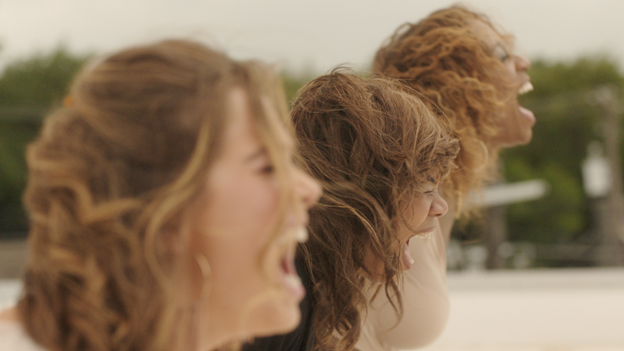 28. SUPPORT THE GIRLS
28. SUPPORT THE GIRLS
Director: Andrew Bujalski
Genre: Comedy
“You like working here, right?” None of the characters in SUPPORT THE GIRLS really have an answer to their boss’s question—they smile, as they smile at their horny, leering customers, and they say “Yeah!” It’s not about the job, the job fucking sucks. It’s about Haley Lu Richardson doing her coworkers’ make-up in the bathroom. It’s about putting on a car wash to hire a lawyer for your coworker’s case against her abusive ex-boyfriend. Finding a support system is crucial to surviving the service industry, especially as a young woman—SUPPORT THE GIRLS is a bittersweet day in the life of Lisa, your dream food service boss, as she struggles to balance her personal life and her professional life while supporting her girls at Double Whammy’s Bar & Grill. SUPPORT THE GIRLS finds equal parts joy and sorrow in the everyday, while quietly reminding audiences of the agressions women are forced to endure every single day. After 90 minutes of polite smiles, the final shot of three women releasing a primal scream is so deeply gratifying you’ll want to re-watch it at least three times. [Aya Lehman]
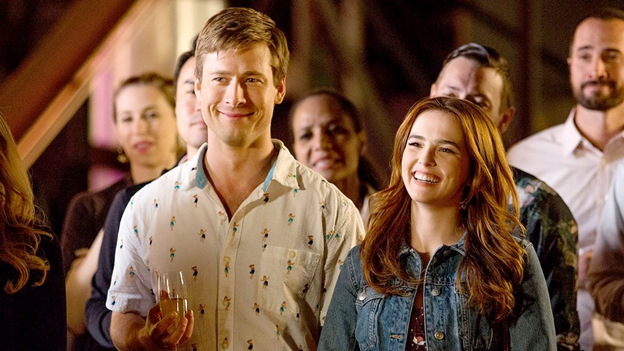 27. SET IT UP
27. SET IT UP
Director: Claire Scanlon
Genre: Romance
Women are so amazing. SET IT UP was directed, written, edited, scored, and produced by women. And it shows. Obviously you’re here to watch some characters fall in love, but the hidden beauty is the reverence the film shows for its female characters. Zoey Deutch’s Harper is never written off as just a Quirky Girl™: she’s independent, funny, smart, and great at her job. Her passion for sports journalism is sweet and earnest. Rom-coms of the 2010s have lost their way—having a stacked cast is one thing, but real chemistry is so hard to fake, and Deutch and Glen Powell have it in droves. Life is so hard, and scary. The future is so daunting. But there is literally nothing like a solid romantic comedy to help you forget. At this point in my life I’m basically married to my phone and on average spend a solid 80% of every movie or TV show trying to split my attention between the media I’m mindlessly consuming and the white noise of Kate Hudson’s instagram story. During SET IT UP, my phone was facedown for at LEAST 85%. The other 15% was me sending texts to every single person I know demanding they stop whatever they’re doing, log onto Netflix, and watch this movie. [Aya Lehman]
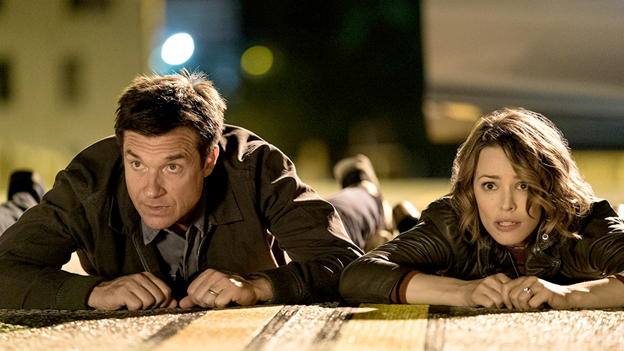 26. GAME NIGHT
26. GAME NIGHT
Director: John Francis Daley and Jonathan M. Goldstein
Genre: Comedy
In a year littered with run-of-the mill comedies, GAME NIGHT came out on top as one of the year’s pleasant surprises, a no-nonsense rollercoaster for those demanding a good ol’ fashioned laugh. Jason Bateman continues to prove his worth as one of comedy’s few actors constantly picking the right screenplays, continuing his trademark put-upon everyman schtick to the nth degree. With Rachel McAdams tag-teaming as a ball of unrivalled comic energy, the two tie together a laugh-out-loud ensemble cast. Like watching the very best improv troupe, the GAME NIGHT cast navigates each scene with an incredible sense of bounce. Directors John Francis Daley and Jonathan M. Goldstein have a real eye for visual comedy, going so far as to using a tilt-shift lens to give the real-world environments a board game look. The duo manipulates the frame with as much flair as a major studio comedy has seen in a long while, and though it’s a familiar story, the directing duo keeps things light and snappy (despite some bouts of fairly graphic violence), cementing GAME NIGHT among the funnest mainstream romps of 2018. [Luka Stojcic]
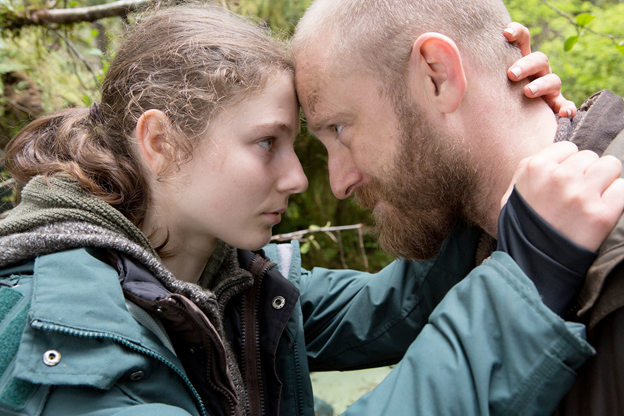 25. LEAVE NO TRACE
25. LEAVE NO TRACE
Director: Debra Granik
Genre: Drama
There is a quiet deconstruction of the masculine ego happening in Debra Granik’s LEAVE NO TRACE, so quiet that it’s almost lost in a restrained story about fatherhood, survival, and PTSD. Ben Foster masterfully portrays Will, a father raising his daughter Tom (played by breakout actress Thomasin McKenzie) in the woods outside of San Francisco, ostensibly homeless while trying to hide away from both the horrors of modern society and from his own fears surrounding being a single parent after serving time overseas. As the two make their way along the West Coast, jumping from home to home, Will’s inabilities as a father are slowly revealed to Tom, and Granik very carely peels back the layers of two immensely complex characters who love each other but need different forms of help. As the world grows more and more harrowing, the ability to ask for and seek help grows more and more difficult, and LEAVE NO TRACE beautifully captures the strength that requires while also delivering two of the year’s best performances and a story filled with thrills, growth, and compassion. [CJ Simonson]
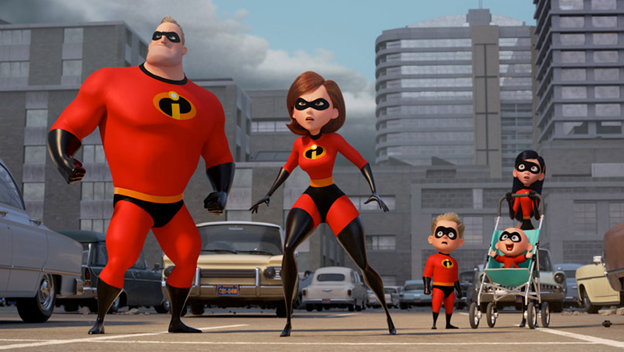 24. THE INCREDIBLES II
24. THE INCREDIBLES II
Director: Brad Bird
Genre: Animation
People forget how ahead of the curve Pixar was in 2004. The original INCREDIBLES not only scratched the superhero itch way before the craze, but also warned of the traps obsession with nostalgia creates. The sequel briefly retreads that territory, but claims that this is a faux-feminist rehaul ring false. The sequel actually goes deeper into the stigma on supers established in the first. Mr. Incredible and Elastigirl, as well as Frozone, are asked by a super-advocate to help end the law banning superhero work. Using supersuit cameras to more easily show the public their perspective when fighting crime, the plan seems like a surefire hit to rehabilitate the super image. Mr. Incredible is eager to step up to the plate, but given his penchant for destruction, Elastigirl is deployed on her own. This leaves Mr. Incredible at home tending to a wild Dash, a heartbroken Violet, and a Jack-Jack gleefully unleashing all of his powers. But it turns out to be more than a simple role reversal, with everyone learning the true meaning of family as an insane finale smashes them back together. Though you wouldn’t know it considering Pixar retains the original’s signature style, the leaps and bounds made in computer-generated animation in the past 14 years makes the two films night and day. THE INCREDIBLES II is probably the best sequel in ages and most definitely better than any other live-action superhero film. [Alexander Larios]
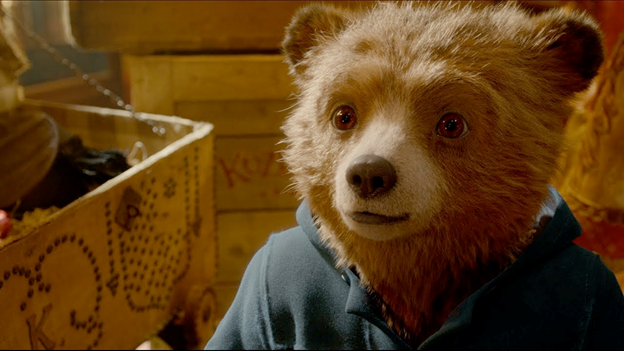 23. PADDINGTON 2
23. PADDINGTON 2
Director: Paul King
Genre: Comedy
More than anything, PADDINGTON 2 represents what 21st century cinema could be. Through a dazzling combination of top-of-the-line CGI and meticulous homages to classic slapstick comedy, PADDINGTON 2 utilizes every tool available to filmmakers with a joy and warmth that radiates through every frame. For our exceptionally dark times, it feels as though we have reached a new period of desperately wanting to see cinematic optimism where it feels appropriate, and I would be hard-pressed to find a better film that advocates for a kinder, gentler world more effectively than PADDINGTON 2. After following our titular bear as he is egregiously framed for robbery, PADDINGTON 2 is arguably a prison abolitionist, pro-immigrant film, adamantly refusing to believe that there is anyone who is beyond redemption. Systems may be cruel and uncaring, people may sometimes behave selfishly, but our ability to choose to be kind will allow us to overcome our trials and tribulations in the end. Of all the movies I saw this year, this is the only one I’ve watched three times, and each time I show it to someone new they come away bursting with delight. It’s a universally entertaining, inspiring film, and this was just the year we needed it most. [Carter Moon]
 22. SEARCHING
22. SEARCHING
Director: Aneesh Chaganty
Genre: Thriller
What should have arguably been a gimmick best kept to UNFRIENDED has been kept alive just a little longer by Aneesh Chaganty’s firecracker debut. Through an exceptionally tight-knit web of screenwriting and editing, not to mention what is yet another career-defining performance for John Cho, David Kim’s search for his missing daughter, Margot, is rendered in such a visceral and immediate manner that you often forget you’re seeing the conflict mediated through several screens. A fundamentally fun night out at the movies, filled with all of the twists, turns, and surprise reveals you could want and then some, while SEARCHING can occasionally stretch our sense of disbelief, it’s in such a genial, starkly entertaining manner it’s hard to begrudge. But perhaps most impressive is how, presumably due to the director’s young age, SEARCHING is finally a film that actually understands the internet in all of its tribulations and triumphs and how people organically use it—even if the Google searches, social media scrolls, and email grinding can intermittently feel mundane, it’s actually one of the more straightforward and honest portrayals of internet-era realism we’ve been exposed to. Look, any way you slice it, this is a chair-gripping thriller with a charming concept, and before we all get tired of this way of telling stories, it’s well worth your time to jump in while the water’s hot. [Thomas Seraydarian]
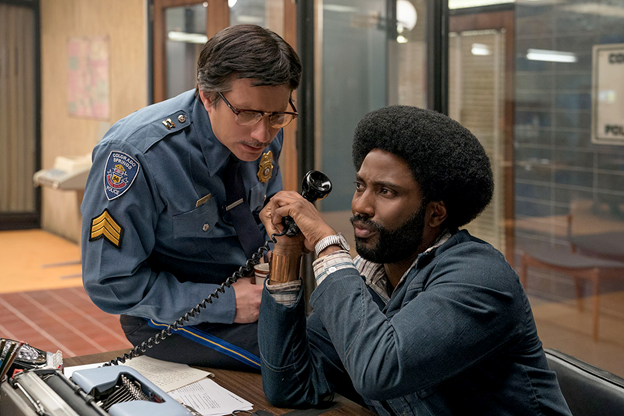 21. BLACKKKLANSMAN
21. BLACKKKLANSMAN
Director: Spike Lee
Genre: Drama
BLACKKKLANSMAN is Spike Lee at his best, building on the style and execution that made Lee a household name. The film is a haunting representation of race relations during the early 1970s, but makes it clear these discussions, misconceptions, and acts of violence are just as prevalent today. The performances are masterful, and the editing and visual style are incredible, but the most notable aspect is how perfectly Spike Lee tells this story. This is a film that will be timeless, giving the viewer a look into the lives of people that battled racism, while urging us to continue the fight. Actors John David Washington and Adam Driver perform with a ferocity and commitment that breathes a synthesis of comic and dramatic energy into the ball of fury that makes up BLACKKKLANSMAN’s political agenda: one that urges us to open our eyes to how real these “dramatized” racists, bigots, and anti-Semites really are. With a whopper of a closing scene that acts as one of Lee’s most transgressive moves as a director to date, he successfully convinces a theatre of moviegoers expecting a giddy comedic romp to consume a brief documentary highlighting the harsh reality of America’s divided sociopolitical climate. [Daniel Brian Foster]
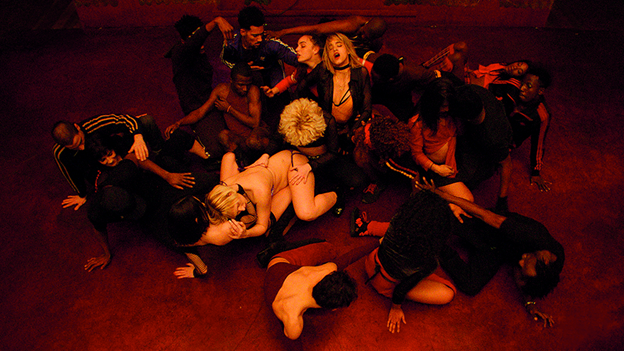 20. CLIMAX
20. CLIMAX
Director: Gaspar Noé
Genre: Horror
It’s difficult to give Gaspar Noé credit when he already does an above-adequate job of heaping it onto himself, so it is with great displeasure to admit that CLIMAX is his prime opus. A24 is still waiting to unleash Noé’s latest on the States, but Europe, fittingly, had autumn and winter of 2018 to give themselves in to the feverish dance of CLIMAX, a film so deft in its tonal realization of a full-blown acid trip. The abject horrors of an act of groupthink, slut-shaming cruelty is followed immediately by Sofia Boutella performing one of the greatest physical comedy routines of the century. What is ostensibly a psychological chamber-horror-drama is also a fiendish microcosm of France’s national identity entrapped in a pulsating dungeon, wherein the protective sheen of hedonism acts as both fuel to persevere in a failing society and the kerosene that keeps the downfall ablaze, transforming a dancefloor for marginalized bodies into the very cesspool of wanton prejudiced violence and systemic extermination that awaits outside the hallowed walls. This world we’ve crafted? It’s not a good place for a kid. CLIMAX is an apocalyptic vision of gyrations and gestations not soon to be forgotten. [Kevin Cookman]
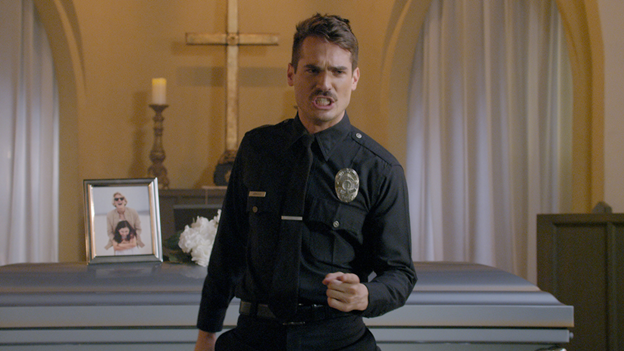 19. THUNDER ROAD
19. THUNDER ROAD
Director: Jim Cummings
Genre: Drama
If there was a film in 2018 that I thought about every single day since first seeing it, it is Jim Cumming’s directorial debut, THUNDER ROAD. More inspiring than any other film released this year, it’s the tale of the little indie that could, an optimistic reminder of the cinematic climate we live in today. Instead of pining for the days of ‘70s auteurism, we should embrace the merits of digital freedom, niche platforming, and self-distribution. Films don’t have to be for everyone anymore, and that’s a landslide shift in the way we perceive cinema. It’s an absolute delight that such a dramaturgically potent cocktail can spread almost entirely through word of mouth and viral fandom, but more importantly, this is a watershed moment for 21st century cinema. We are now in the threshold of America’s Digital New Wave—at least that’s what I’m dubbing it for now. We’ve been in it for a hot minute, but THUNDER ROAD might be our wake up call, a film that flexes a directorial savviness that blurs the line between no-budget indie picture and studio mandated blockbuster. MOONLIGHT is winning Oscars over LA LA LAND and Steven Soderbergh is self-distributing films starring Daniel Craig and Channing Tatum. The times they are a changin’, and THUNDER ROAD is leading the pack. [Sergio Zaciu]
 18. THE DEATH OF STALIN
18. THE DEATH OF STALIN
Director: Armando Iannucci
Genre: Comedy
For my money, THE DEATH OF STALIN is the funniest film of the year, and perhaps even recent memory, a consistently side-splitting farce that will appeal to those whose comedic sensibilities err on the side of the pitch-black. Telling a fictionalized account of the scrambling of Soviet leadership after the sudden death of their not-so-benevolent leader, the script can only be described as a juggernaut of wit, tight as a drum and meticulously plotted, running like only the most well-oiled of machines. Somewhere in the vein of IN THE LOOP, albeit with the spectre of state-sanctioned violence constantly operating in the background, THE DEATH OF STALIN’s farce is subtle and even-handed, and those looking for social commentary will have to swallow the pill of needing to identify with some of the Soviet cabinet to proceed. Nevertheless, to say that the film is anything other than a viciously intelligent satire is simply uninformed, and the takedowns of everyone in the administration are merciless, even if some are ostensibly treated with more care and grace than others. Contained enough to reach a fever pitch while burying the leads of its truly staggering amount of star power, THE DEATH OF STALIN takes more risks than almost anything else from 2018 and is ideal fodder for a slightly more informed late-night watch. [Thomas Seraydarian]
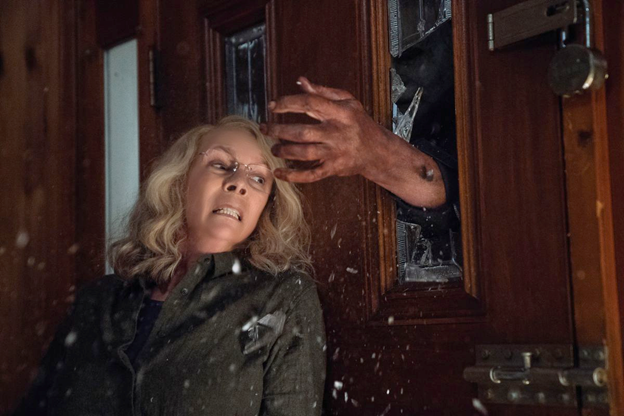 17. HALLOWEEN
17. HALLOWEEN
Director: David Gordon Green
Genre: Horror
Halloween is the rare franchise that can reboot itself, continue a prior film’s continuity, or even retcon entire sequels. It trust its audience to understand what’s happening and to simply roll with it. When I first heard David Gordon Green’s HALLOWEEN would be coming out as a direct sequel to the original, I was skeptical. But as it turns out, Green’s film is one of the most engaging horror films of the past few years. Every frame is meticulously crafted, and the general attention to detail and build-up of suspense is palpable. The film has a self-aware nature that gives it a slight comedic edge, yet never loses sight of its underlying themes. Although not perfect, this is a rare case of the right film at the right time, delivering a tale of strong female characters taking back their narrative from a spector who has plagued their family for generations. [Daniel Brian Foster]
 16. SHOPLIFTERS
16. SHOPLIFTERS
Director: Hirokazu Koreeda
Genre: Drama
Top-notch humanist filmmaking. A marvelous familial portrait of a ragtag group of misfits bound not by blood, but by their need for each other. So many images unflashy in their composition, yet so definitive in their power. Lovemaking in the rain. Spilling oranges. Devastated close ups in a police station. The look of joy from eating a potato croquette. The look of fear of the possibility of getting caught stealing. The look of peace in knowing that, at least for a few fleeting moments, a boy and a man who have found each other are the best things that could ever happen to one another, even if it can’t last forever. SHOPLIFTERS is director Hirokazu Koreeda cementing his place in the pantheon of Japanese cinema (if he hadn’t done that already). Perhaps winning the Palme D’or was the only thing keeping him from this recognition, seeing as his prior outings STILL WALKING, NOBODY KNOWS, and many more have gone on to become favorites of far east Asian cinema: a logical continuation of the melancholy, domestic filmmaking of Yasujiro Ozu. It’s a tapestry of unrivalled empathy, and boasts a phenomenal cast working at the height of their game, with Koreeda’s frequent collaborator, the late Kirin Kiki, receiving a career-defining sendoff. [Reid Antin]
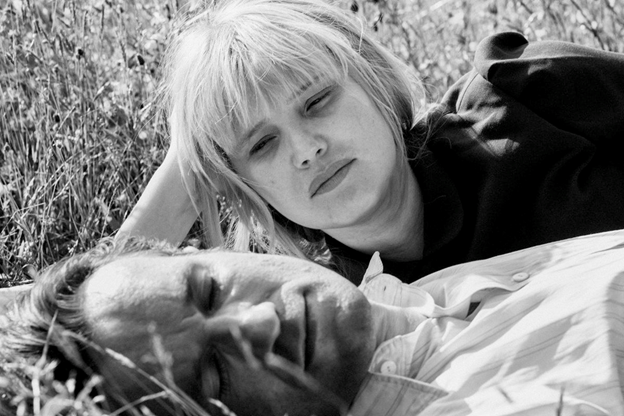 15. COLD WAR
15. COLD WAR
Director: Pawel Pawlikowski
Genre: Romance
COLD WAR is the cinematic equivalent to listening to jazz while sitting in a bathtub filled with ice-cold vodka. Perfectly cast, perfectly shot, perfectly edited. Essentially a three-hour melodrama condensed to create a concise, 90-minute masterstroke. A film that truly builds momentum and coalesces to create what will surely be one of cinema’s most enduring love stories. It sticks the landing, not least in the fact that it ends exactly where it’s supposed to. The massive time jumps work like memory, and indeed, the length of each segment subconsciously corresponds to how we remember different times of our own lives in love. The longest segment of the film represents the period of time in which the film’s couple are with each other the longest, and in turn, is the time in which they are most unhappy with one another. This is starkly contrasted to the earlier, shorter, sweeter segments of momentary longing in a field or a bathroom floor that show their times of greatest bonding. The ending is haunting, and not a day has gone by since I saw it a month ago that I haven’t thought about them in the church, face forward to the camera with… I won’t spoil it. [Reid Antin]
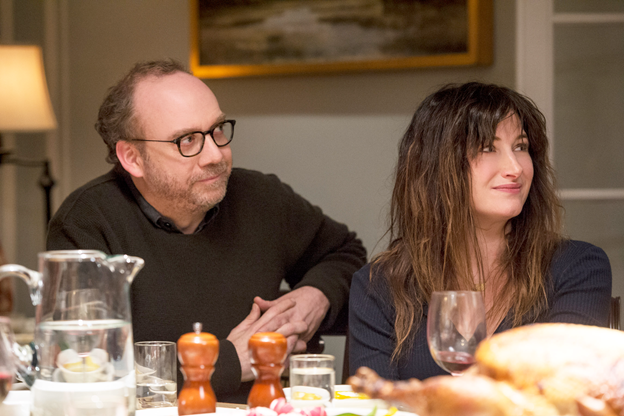 14. PRIVATE LIFE
14. PRIVATE LIFE
Director: Tamara Jenkins
Genre: Drama, Comedy
Paul Giamatti continues his reign as one of the great actors of our generation and Kathryn Hahn is an absolute, unfettered firecracker. Together they are screen perfection in Tamara Jenkins’ PRIVATE LIFE, a story of a husband and wife desperate to have children before that biological clock ends all chances of conception. Jenkins’ screenplay is unfussy, focused, and concise, and tackles a concept we’ve not seen discussed often in cinema, doing so with aching authenticity and a respect for its characters that simply overwhelms. It’s a distinctly warm film for a set of protagonists who in many ways behave very selfishly, but it is precisely this charity that Jenkins grants to her ensemble that makes PRIVATE LIFE such an engrossing watch. It’s absolutely brilliant how simple and believable each trespass in PRIVATE LIFE is, securing it as some of the very best screenwriting in a 2018 release. Jenkins understands the hop-scotch game of comedy and melodrama like a tried and true veteran. Always funny, frequently heartbreaking, and yet filled to the brim with hope: it’s a gem. [Luka Stojcic]
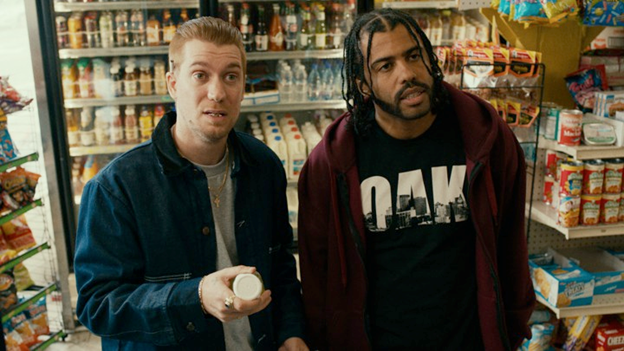 13. BLINDSPOTTING
13. BLINDSPOTTING
Director: Carlos López Estrada
Genre: Comedy, Drama
2018 saw many adept and astute commentaries on the increasingly conflicted world around us, but everyone seems unfortunately keen on ignoring BLINDSPOTTING, one of the most memorable and firecracker outings of last year. Tackling the complicated issue of whether bonds formed on the lower rungs of the socioeconomic ladder can transcend racial privilege and bias, the film is one of the more nuanced and layered looks at whiteness, “allyship,” and how it all plays out in these troubled times, impressive for both the fairness and thoroughness of its critique. If that makes it sound like a stodgy collegiate thesis, fear not, as it’s also a vibrant, colorful, and loving portrait of Oakland that’s heavy on the humor, a remarkable lightness of touch present here that’s a breath of fresh air in a rather dour bracket of awards season fare. With a masterful grasp of dialogue nodding to the spoken word past of co-star Rafael Casal and a tour de force outing from Daveed Diggs, BLINDSPOTTING also possesses some of 2018’s most tense screenwriting, its second half a nail-biting build to an explosive confrontation that will leave you short of breath. Do yourself a favor and stop sleeping on it. [Thomas Seraydarian]
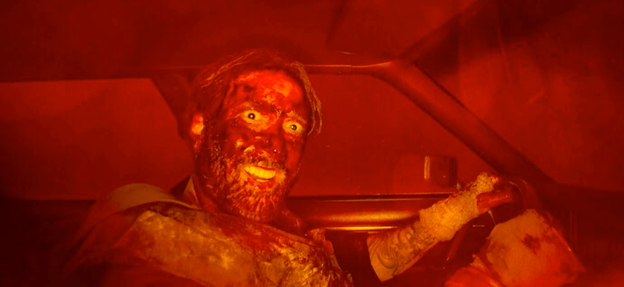 12. MANDY
12. MANDY
Director: Panos Cosmatos
Genre: Horror
Panos Cosmatos certainly did not disappoint in following up the masterful BEYOND THE BLACK RAINBOW. Forget even that fact that we’re seeing Nicolas Cage do Nic Cage stuff in a “good” movie. This Frank Franzetta fever dream doesn’t give a shit about any reality except Panos’ reality. A tea deeply steeped in the musty shelves of early-’80s video stores. It’s a ride! A ride best experienced with a LOUD sound system, and an even louder screaming crowd to match. It’s a film of two halves: the first a slow-burn atmospheric wonderland that some may find slow, while others may find transcendent. The second half is one of the most gonzo trips into the Orpheus legend you’re likely to find for quite some time. Bridging it all in the middle are The Cheddar Goblin (more of this, please!?), and the best shot of the year in which Nicolas Cage downs an entire bottle of vodka in one horrifically unbroken take, and somehow, defying logic and reason, manages to break your heart in the process. [Reid Antin]
 11. SHIRKERS
11. SHIRKERS
Director: Sandi Tan
Genre: Documentary
I made it my mission in 2018 to find this year’s TICKLED. I found it in Sandi Tan’s autobiographical docu-horror-fantasia, SHIRKERS. Tracing the events that led to an enigmatic mentor absconding with the footage of her first feature film, the story of SHIRKERS is the ultimate nightmare of any aspiring filmmaker. I can’t imagine what I would have done had I experienced what Sandi did (I use her first name because her film already has me feeling like we’re close friends). The fact that she not only defeated her demons, but somehow turned two decade’s worth of collected lemons into one of the most delicious servings of lemonade I’ve ever tasted is nothing short of astounding. When I tell people that you cannot be an artist without holding onto your inner child, this is exactly what I mean. SHIRKERS is a love letter to filmmakers, dreamers, and children alike. It’s a constant reminder that we should never give up on our silly fantasies, even if they’ve been abducted to Perth, Detroit, and New Orleans. [Sergio Zaciu]
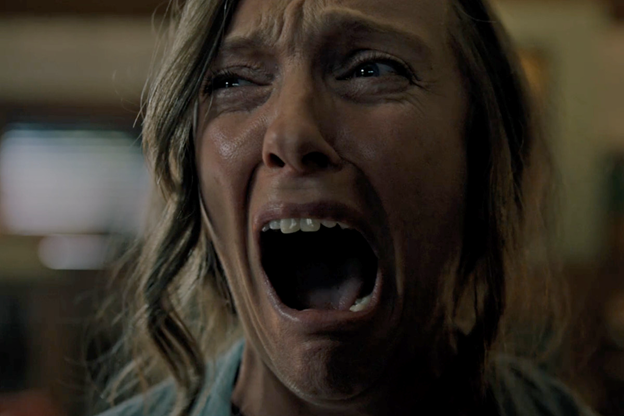 10. HEREDITARY
10. HEREDITARY
Director: Ari Aster
Genre: Horror
Few mainstream film releases in the history of the medium dared to be as mean, as emotionally preying, or as ruthlessly horrific as Ari Aster’s audacious debut, HEREDITARY, a domestic horror-tragedy that hinges its primal frights on deep-rooted familial resentments. Toni Collette may have been excised from awards season voting, but who needs them anyway? The ferocity of a sorrowful mother caving under the psychosomatic and ritualistic weights of hereditary trauma unleashes a cloud of doom, and the punching-bag inhabitants of Aster’s impeccably designed Utah dollhouse manor suffer the violent, asphyxiating manifestations of grief. A family is nothing but a demonic harbinger of the bloodline’s poison, and love caves under the chains of rancor. And most perverse about it all? Aster’s grinning cheek to cheek as it all unfolds. This is chilling, Satan-tier horror cinema, and we’re lucky to have it. [Kevin Cookman]
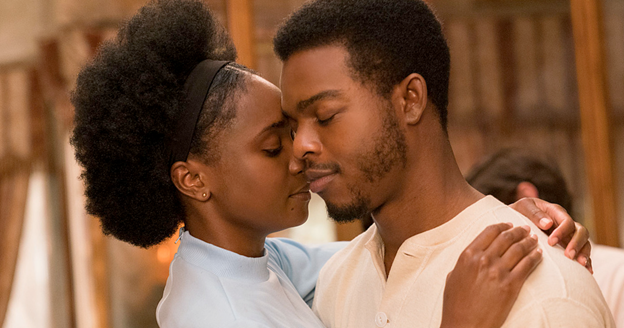 9. IF BEALE STREET COULD TALK
9. IF BEALE STREET COULD TALK
Director: Barry Jenkins
Genre: Romance
Through voice-over narration, young Clementine “Tish” Rivers, played by KiKi Layne, briefs the audience on her circumstances as she reveals to her incarcerated partner, Alonzo “Fonny” Hunt, played by Stephan James, that she’s pregnant with his child. The nonlinear dual narrative follows Fonny and Tish’s blossoming relationship and their respective families trying to clear Fonny’s name. But one of the most evocative performances of the year has to be the impeccable Regina King as Tish’s mother, Sharon Rivers, whose love for her family pushes her to the limit. Of course, enough has been said about Jenkins’ international influences as a self-purported cinephile. His slower moments of reflection provide a contrast to the intensity of each dramatic beat, so every time emotions take over or a fist is clenched in frustration, Jenkins finds interesting ways to release that energy as the film’s soul-stirring score begins to lead the way. This, paired with Baldwin’s core messaging in his original work, laid out in video essay format by Tish’s voice narrating over real world photographs of impoverished black youth, makes BEALE STREET not only a work of beauty, but one of utmost importance. [Alexander Larios]
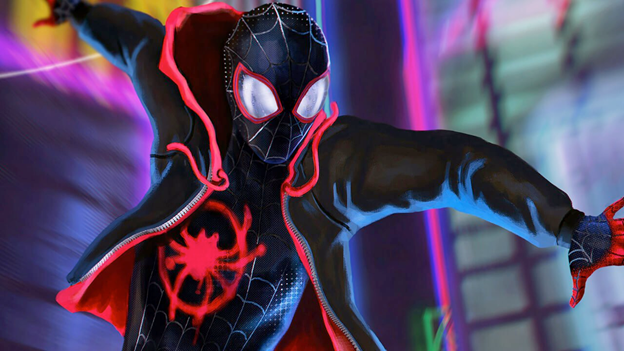 8. SPIDER-MAN: INTO THE SPIDER-VERSE
8. SPIDER-MAN: INTO THE SPIDER-VERSE
Director: Bob Persichetti, Peter Ramsey, and Rodney Rothman
Genre: Animation
And here we were thinking the Superhero genre was nearing extinction… From Sony Animation, and animation geniuses, Phil Lord and Chris Miller, SPIDER-MAN: INTO THE SPIDER-VERSE bursts at the seams with creativity, originality and style. To think that the same studio that brought us THE EMOJI MOVIE would deliver one of the most visually lavish American animated features in years is basically unbelievable. It’s beautiful, fast, and effortlessly sheds baggage from less-successful iterations of the iconic story. Digging deeper into its comic roots, the film is animated like a graphic novel come to life, and even when ignoring the clout of its visual style, the film’s central character, Miles Morales, embodies the purity and bravery of the original Spiderman, adding a profound narrative to a whirlwind aesthetic spectacle. Along with an extremely fun (and funny) supporting ensemble, it’s all a blast, and one of the most striking studio films I’ve seen in a long time. Here’s to superhero films that feel fresh. [Sam Wall]
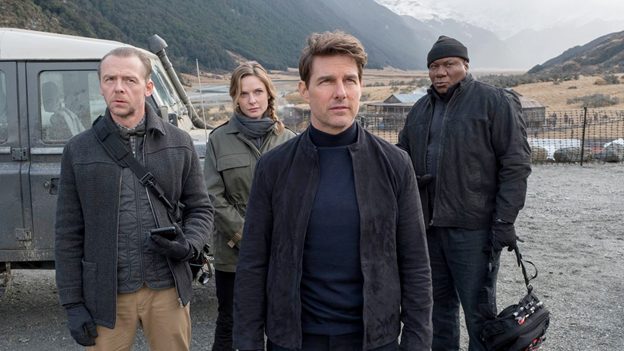 7. MISSION: IMPOSSIBLE – FALLOUT
7. MISSION: IMPOSSIBLE – FALLOUT
Director: Christopher McQuarrie
Genre: Action
Tom Cruise is still kickin’ and he wants the world to know it. The man repeatedly risked death and broke a couple bones for the sixth installment of this beloved action series, and boy did it pay off. Cruise’s dedication to the role shines through in every scene as he continues to bring life to a franchise that could have easily gone stale years ago, but Tom Cruise is Ethan Hunt, and as long as the man is running, Mission: Impossible won’t kick the bucket. FALLOUT pushes the stunts to the absolute limit and then goes right over the edge, all while remaining as slick and smooth as ever. With Christopher McQuarrie returning to the director’s chair, it appears that Cruise has found the Yin to his proverbial Yang, elegantly careening from one set piece to the next; an unrivaled showcase of visual dexterity and acrobatic chops. MISSION: IMPOSSIBLE – FALLOUT earns its praise by never being boring for the entirety of it’s 148-minute running time (and trust us, most of that is running). It truly sets the standard for what every action movie should be, begging the question as to who—if not Cruise and McQuarrie themselves—will try to one-up it. [Nadia Hayford]
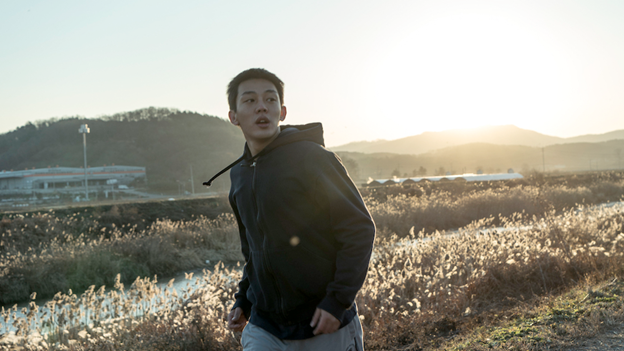 6. BURNING
6. BURNING
Director: Lee Chang-dong
Genre: Drama
It’s been longer than I can remember that a film has left me reeling, but I haven’t managed to stop thinking about Lee Chang-dong’s critically acclaimed but popularly ignored BURNING in the past month since I’ve seen it. Telling the story of a doomed love triangle between the lethally awkward Lee Jong-su (a revelatory Yoo Ah-in), the free-spirited Shin Hae-mi (Jeon Jong-seo), and the aloof and effortlessly suave Ben (Steven Yeun), BURNING is the best Murakami adaptation we’re ever going to get, nailing the queasy fringes at the edge of the acclaimed author’s work that speak of something darker, mysterious, and often surreal. The glacially-paced slow burn leaves the stomach roiling with anticipation, fully captivating attention throughout the film’s significant runtime. But what’s perhaps most exciting about BURNING is just how many conclusions you can walk away from it with. Is it a murder-mystery? A magical realist tale of a “trickster” archetype? A commentary on the South Korean socioeconomic condition? A pressure cooker of repressed sexuality and desire? All I know is that for the first time since the early years of college I couldn’t wait to hop online and discuss the film with my friends, and that’s the mark of something special. [Thomas Seraydarian]
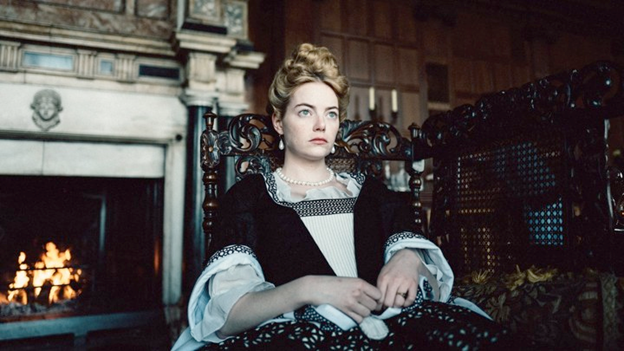 5. THE FAVOURITE
5. THE FAVOURITE
Director: Yorgos Lanthimos
Genre: Comedy
Yorgos Lanthimos does not disappoint in his period satire that spotlights three extraordinarily talented leading women. THE FAVOURITE features stellar performances by Olivia Colman, Rachel Weisz, and Emma Stone, all three of whom have been nominated for the Oscar in their respective categories, and rightly so. Each actor in this symphony of performances is perfectly cast, including those in smaller roles, especially Nicholas Holt, who manages to impress despite being in only a handful of scenes. But the real standout is Colman, who plays Queen Anne with an extraordinary innocence that could easily have seemed ridiculous if played too intensely. Weisz and Stone support as dueling schemers playing a dangerous game of chess that includes not only Queen Anne’s heart and mind, but Britain’s involvement in the War of Spanish Succession. THE FAVOURITE is a breath of fresh air in the courtyard of costume dramas, reveling in the ambition and femininity of powerful women instead of the usual stuffy stoicism of the male historical figures we’ve seen in so many films before. [Nicole Barraza Keim]
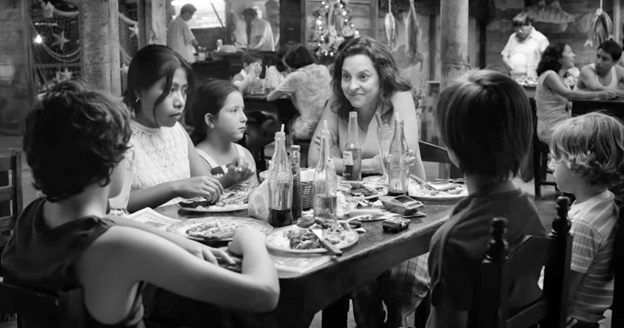 4. ROMA
4. ROMA
Director: Alfonso Cuarón
Genre: Drama
“Do you like it, Cleo?” Teresa asks in a stately manner. “It’s very pretty,” Cleo responds before placing her fingers over her stomach as she stares at the baby crib in front of them. “How much is it?” inquires Teresa, quickly indicating that a long-standing client discount should be in order. The department store employee leaves and, with that, the camera begins a 360° degree pan that at this point in the film has become second nature to Cuarón’s carefully planned cinematography. Characters rush to a window to see the beginnings of what would historically be known as El Halconazo, a massacre of nearly 120 protesters. The camera finally cuts to reveal gunmen running into the store, and who should be among them but the father of Cleo’s soon-to-be-born baby. Like Cuarón is one to do, he quietly sets up something grand, cinematically complex, and altogether harrowing, only to subvert it by bringing it all back to the often crippling nature of our personal lives. ROMA is a series of staggering sequences made to look natural, simple even, and at the heart of each of them is the nagging reminder that our own lives are disorienting even when the outside world isn’t. Just as quickly as it disappears off camera, the riot becomes an afterthought, a way to contextualize and place a moment in time. From the chipped paint of the department store window to the “Amor Es” t-shirt Fermín is wearing as he points the gun at Cleo, ROMA is one of the greatest memories ever painstakingly committed to film. [CJ Simonson]
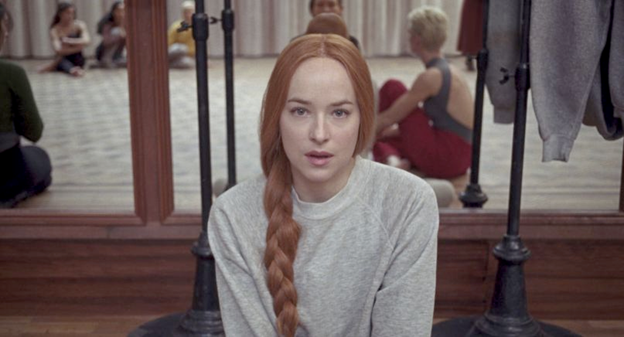 3. SUSPIRIA
3. SUSPIRIA
Director: Luca Guadagnino
Genre: Horror
Director Luca Guadagnino’s follow-up to CALL ME BY YOUR NAME features a similar scenario and set of characters as Dario Argento’s original 1977 film, but that’s where the similarities between the two SUSPIRIAs end. The 2018 remake’s introductory text—“six acts and an epilogue set in divided Berlin”—is more indicative of Guadagnino’s true motives for resurrecting the giallo classic than any of the bloodsoaked imagery that follows. SUSPIRIA is as much a scathing critique of the current political landscape as it is a demented slasher, and yet the film graciously refuses to allow either element to compromise the other. It’s no accident SUSPIRIA has proven to be so polarizing with critics; it is as upsetting as a film can be without being labelled as exploitation. Johnson and Swinton are empowered not as heroines but as monsters and tyrants, and there are enough thrills, chills, and kills here to leave even the most hardened horror fan weak in the knees by the time the credits roll. The reflection SUSPIRIA casts is unflattering, and if that makes it difficult to stomach, perhaps that speaks more to the clarity of Guadagnino’s vision than to any flaw in his condemnation. [Ed Dutcher]
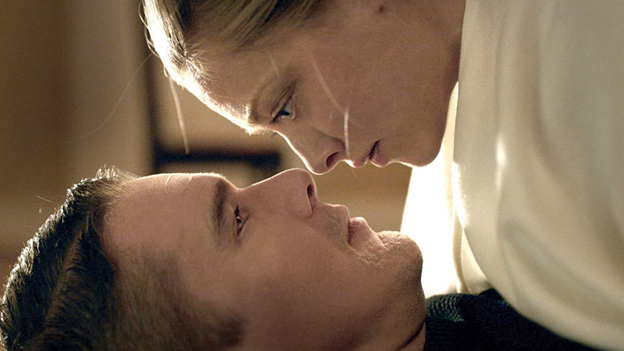 2. FIRST REFORMED
2. FIRST REFORMED
Director: Paul Schrader
Genre: Drama
In modern times and especially in Protestantism, the role of those of the cloth has diminished from actual divine vessels to wells of wisdom supposedly worthy of laymen’s trust. FIRST REFORMED tests how far that relationship can go. In one of Upstate New York’s oldest churches, Ethan Hawke’s Reverend Ernst Toller is asked by pregnant churchgoer Mary to convince her husband to not abort their unborn child. When meeting Mary’s environmentalist husband Michael, it’s apparent to Toller that he’s not only wracked with guilt for potentially bringing a child into a hostile, dying world, but also for mankind’s part in the matter. The Reverend assures him that looking to reason will only result in pain, and promises to meet with Michael again. Through Toller’s solemn diary writings’ employment of voice-over narrative, a device well spent in writer/director Paul Schrader’s arsenal, audiences learn that the Reverend’s internal struggles echo the same, if not a greater, disdain for humanity’s treatment of God’s creation. Despite the best efforts of a megachurch pastor, for Toller to “get out of the Garden of Gethsemane,” the Reverend’s convictions are unshaken as he embarks on a journey even the most devout of us dare not take. It is, with no uncertainty, Schrader’s swansong, a summation of an epic, trailblazing career. [Alexander Larios]
 1. EIGHTH GRADE
1. EIGHTH GRADE
Director: Bo Burnham
Genre: Comedy
The isolation, the fear, the rejection, the hormones; all swirl around in a toxic broth that results in *shudder*… Middle School. It’s no surprise that Bo Burnham’s EIGHTH GRADE is Merry-Go-Round’s favorite film of the year, since it violently brings us all back to that time. “Wait, what?! I hate all of that!” you might say. And most of us did too! But through the film’s main character, Kayla, her insecurities and triumphs become our own. We feel guilt for how she lashes out at those who love her, because many of us have done the same. Her loneliness in a gilded age of social media urges us to remember that others pretend just as much as we do. And despite all of this, she chooses to approach others with an awkward kindness and quiet bravery. Burnham ensures her journey is done so truthfully, and empathetically, all-the-while reminding us that life is weird, and scary, and very funny. In short, the film makes us feel real things in a universally relatable way. So, even though the world doesn’t necessarily get less complicated after middle school, we learn to be stronger, and EIGHTH GRADE reminds us that we’re better for it. [Sam Wall]



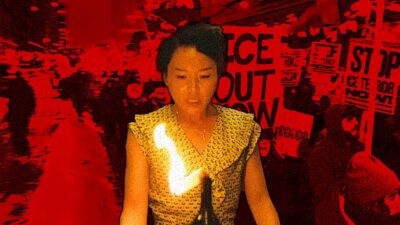
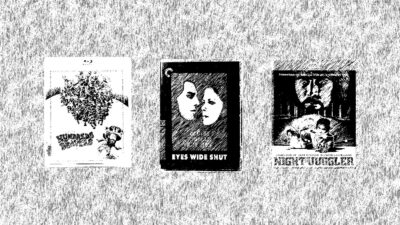










Comments